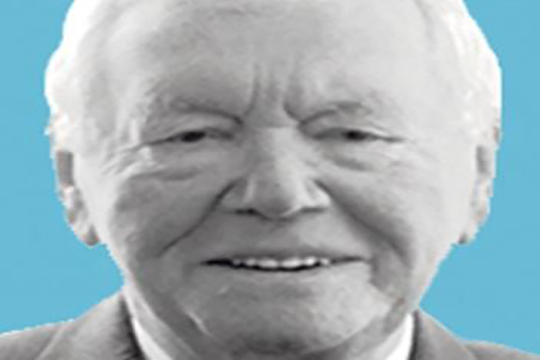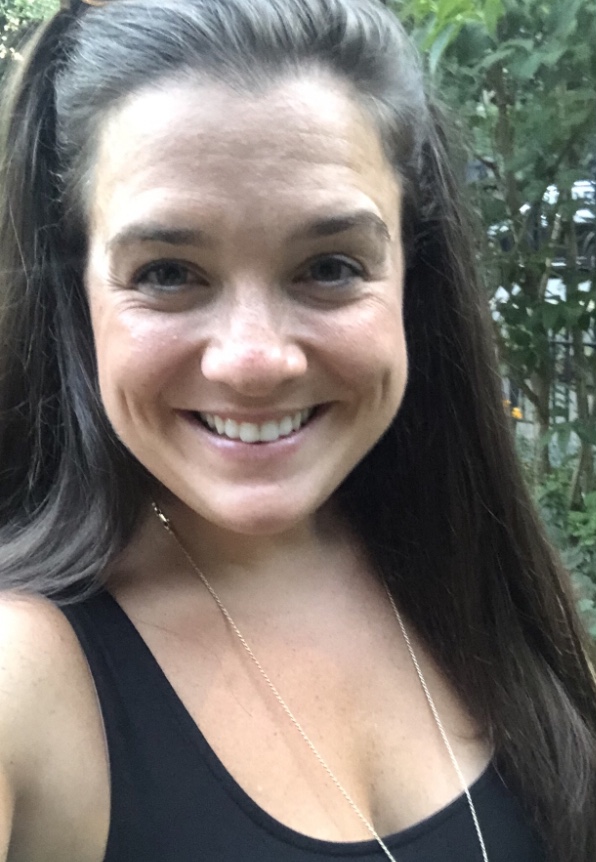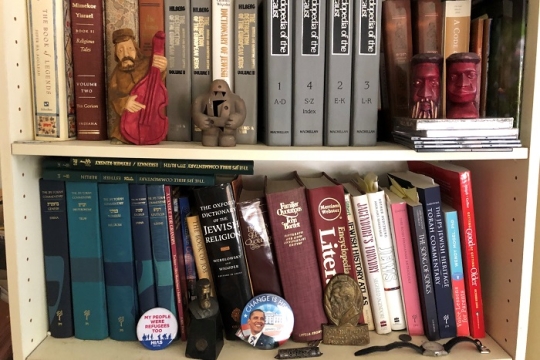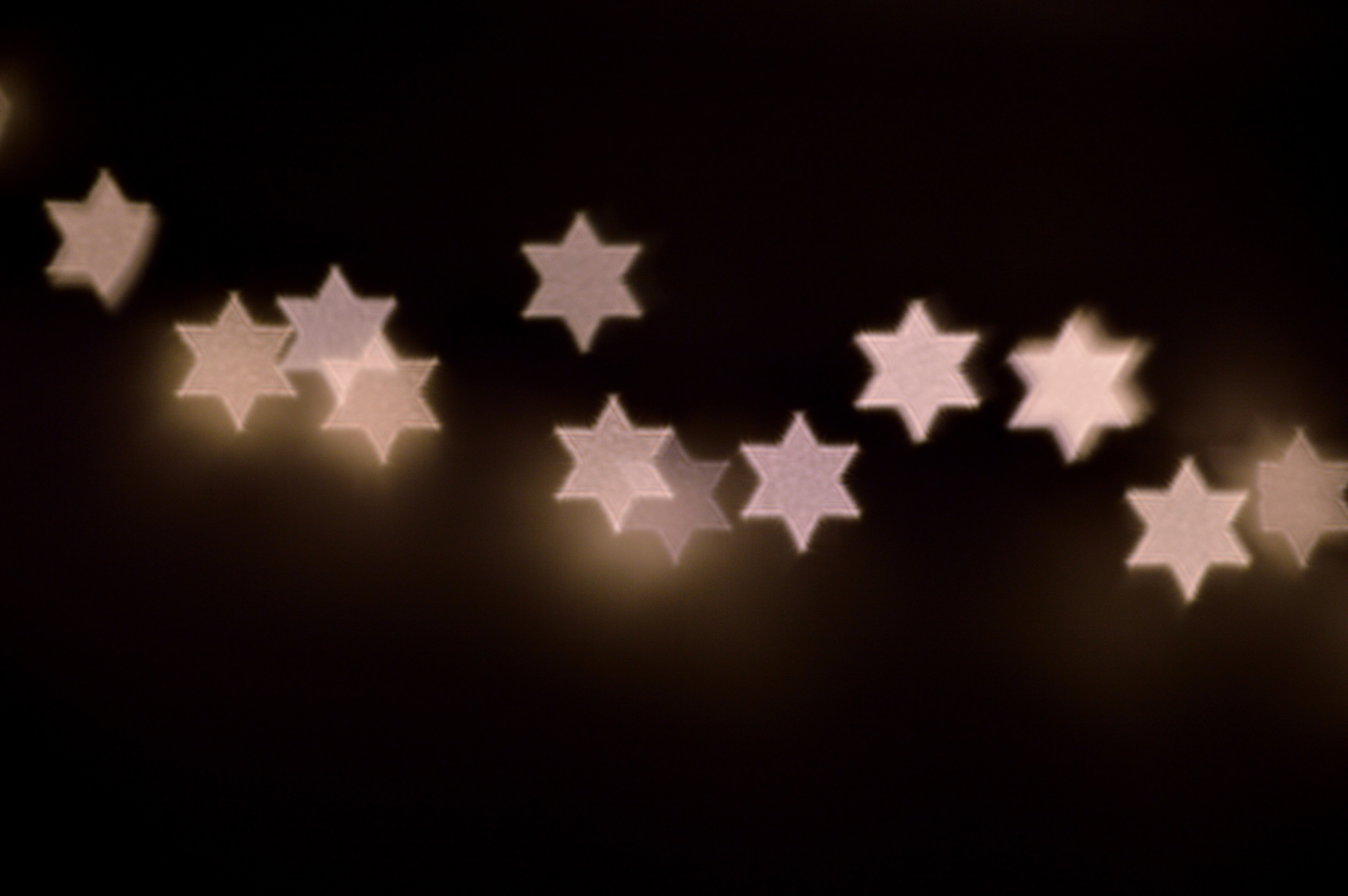
As we head into the holiday season, I am acutely aware of how much different this year is going to be than previous ones. In the past, coming off the Jewish New Year, the fall and winter season were calming times for me, predictable routines that I both looked forward to and found comfort in. I would leave my apartment in the city, and, like many, return home for Thanksgiving to spend the week in southern New Jersey with my parents and my sister and brother-in-law. Depending on when Hanukkah fell, we'd light candles in person or on FaceTime (with my Jewish Adjacent brother-in-law impressing us all with his knowledge of the candle blessing) and then head to my aunt's house with my mother for Christmas. Except for 2020's change of plans due to the pandemic, this has been the tradition of my holiday season for over 10 years.
This year is different, though, because I will be celebrating without my mom for the first time. My mother died in January, and I'm still dealing with the unexpected waves of grief that wash over me, sometimes out of nowhere. As I head into this first winter holiday season without her, I'm not quite sure I know what to expect, other than everything is going to be very different.
My mother created the magic for so many family gatherings, and the thought of not having her there ever again actually takes my breath away. We won't be driving around looking at Christmas lights, or watching Hallmark movies together, or trying out new recipes. We won't be eating mini kosher hot dogs and frozen latkes. We just won't… be. I know that our family must push forward, continue with traditions, make new ones, and hold onto memories, but it's just… hard.
I know I am far from the first person to enter a holiday season with grief and uncertainty. In addition to the death of a loved one, people are dealing with losses of all types, and many have not been given the opportunity to grieve properly. Some of us have had to forgo , in-person funerals, proper gatherings with loved ones who could otherwise have supported us through the grieving process. The pandemic prevented many people from spending quality time with sick friends and family to whom they never got to say the goodbyes they would have liked. Some are not only grieving the loss of a loved one, but are also grieving the many ways their relationships and their grieving processes were hampered and stilted by the pandemic. I should note that I understand that no one's grief journey is the same; for some, the slowing down of life due to the pandemic gave them the opportunity to grieve.
Maybe you are heading into this holiday season for the first time (or the second, or fifth, or twentieth season) without your loved one, or you're facing estranged or challenging family dynamics, or perhaps you were raised in an environment where there was no such thing as warm "holiday magic" and it's an especially difficult time. Whatever your situation, know that there is someone else out there who is similarly experiencing this season. Jewish tradition teaches us the concept of l'dor vador, from generation to generation. I interpret this as a commitment to pass along to the next generation what is important. For me, that means a commitment to hold onto and pass along the parts of my mother I know made the world a better place: her sense of generosity, her humility, and the fierce loyalty she showed to those she loved.
Whether you plan to spend the winter holidays with your friends, family, or perhaps the chosen family so many of us work hard to create, I hope you can hold on to what brings you warmth and comfort. I won't tell you everything will be okay or that someday you'll feel better, I just want to affirm that sometimes things are just…hard, and I think that has to be okay.
Related Posts
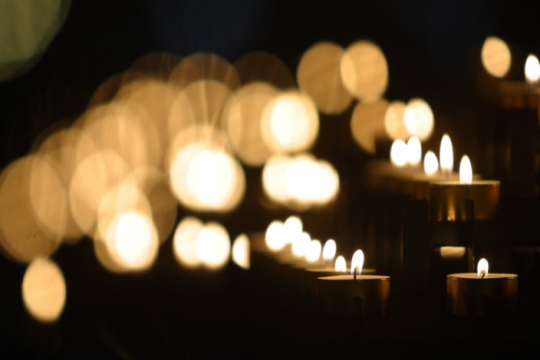
This Tishah B'Av, Act as if There is No God
